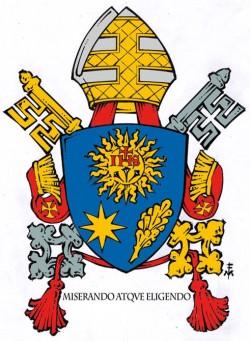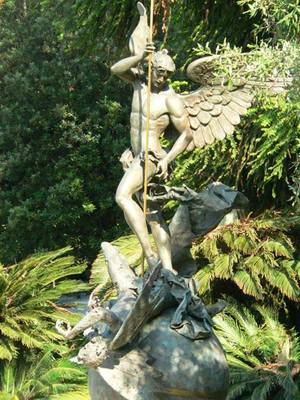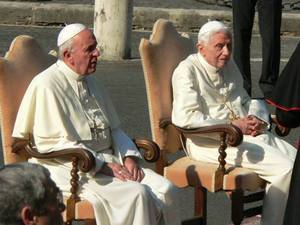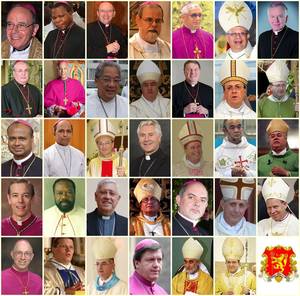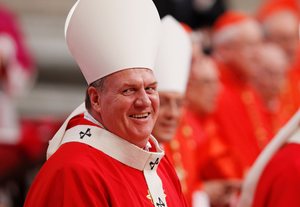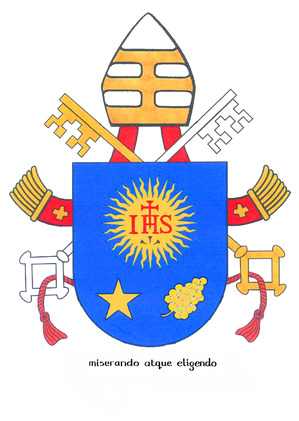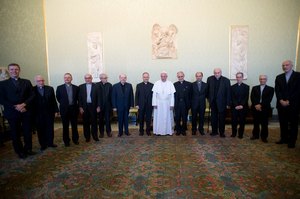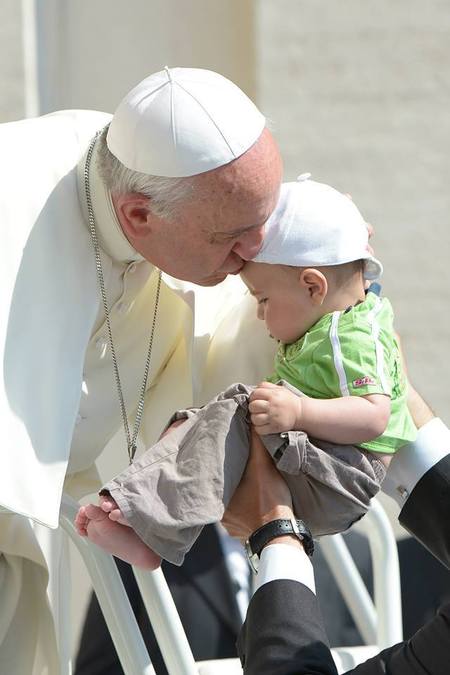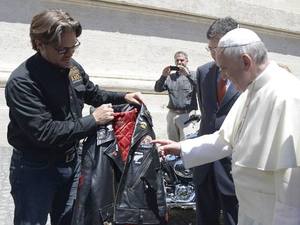Three paragraphs excerpted from the Pope’s homily earlier today bear our reflection if we desire to be true disciples of the Lord Jesus. He sets up for us a structure of holiness that unites a totality of life: faith, work, learning, culture. Francis’ homily is clearly Jesuit and clearly marked by an integrated spiritual life. He echoes what we’ve come to appreciate about the guidance in the spiritual life through the Servant of God Father Luigi Giussani. Of course, you can say Francis is showing us anew what the Church believes to be true. Consider His Holiness’ three points:
1. Hopefulness. The second reading of the Mass presents a dramatic scene: a woman – an image of Mary and the Church – is being pursued by a Dragon – the devil – who wants to devour her child. But the scene is not one of death but of life, because God intervenes and saves the child (cf. Rev 12:13a, 15-16a). How many difficulties are present in the life of every individual, among our people, in our communities; yet as great as these may seem, God never allows us to be overwhelmed by them. In the face of those moments of discouragement we experience in life, in our efforts to evangelize or to embody our faith as parents within the family, I would like to say forcefully: Always know in your heart that God is by your side; he never abandons you! Let us never lose hope! Let us never allow it to die in our hearts! The “dragon”, evil, is present in our history, but it does not have the upper hand. The one with the upper hand is God, and God is our hope! It is true that nowadays, to some extent, everyone, including our young people, feels attracted by the many idols which take the place of God and appear to offer hope: money, success, power, pleasure. Often a growing sense of loneliness and emptiness in the hearts of many people leads them to seek satisfaction in these ephemeral idols. Dear brothers and sisters, let us be lights of hope! Let us maintain a positive outlook on reality. Let us encourage the generosity which is typical of the young and help them to work actively in building a better world. Young people are a powerful engine for the Church and for society. They do not need material things alone; also and above all, they need to have held up to them those non-material values which are the spiritual heart of a people, the memory of a people. In this Shrine, which is part of the memory of Brazil, we can almost read those values: spirituality, generosity, solidarity, perseverance, fraternity, joy; they are values whose deepest root is in the Christian faith.
2. The second attitude: openness to being surprised by God. Anyone who is a man or a woman of hope – the great hope which faith gives us – knows that even in the midst of difficulties God acts and he surprises us. The history of this Shrine is a good example: three fishermen, after a day of catching no fish, found something unexpected in the waters of the Parnaíba River: an image of Our Lady of the Immaculate Conception. Whoever would have thought that the site of a fruitless fishing expedition would become the place where all Brazilians can feel that they are children of one Mother? God always surprises us, like the new wine in the Gospel we have just heard. God always saves the best for us. But he asks us to let ourselves be surprised by his love, to accept his surprises. Let us trust God! Cut off from him, the wine of joy, the wine of hope, runs out. If we draw near to him, if we stay with him, what seems to be cold water, difficulty, sin, is changed into the new wine of friendship with him.
3. The third attitude: living in joy. Dear friends, if we walk in hope, allowing ourselves to be surprised by the new wine which Jesus offers us, we have joy in our hearts and we cannot fail to be witnesses of this joy. Christians are joyful, they are never gloomy. God is at our side. We have a Mother who always intercedes for the life of her children, for us, as Queen Esther did in the first reading (cf Est 5:3). Jesus has shown us that the face of God is that of a loving Father. Sin and death have been defeated. Christians cannot be pessimists! They do not look like someone in constant mourning. If we are truly in love with Christ and if we sense how much he loves us, our heart will “light up” with a joy that spreads to everyone around us. As Benedict XVI said here, in this Shrine: “the disciple knows that without Christ, there is no light, no hope, no love, no future” (Inaugural Address, Fifth General Conference of the Bishops of Latin America and the Caribbean, Aparecida, 13 May 2007, 3).
Pope Francis
The Shrine of Our Lady of the Immaculate Conception of Aparecida
24 July 2013

